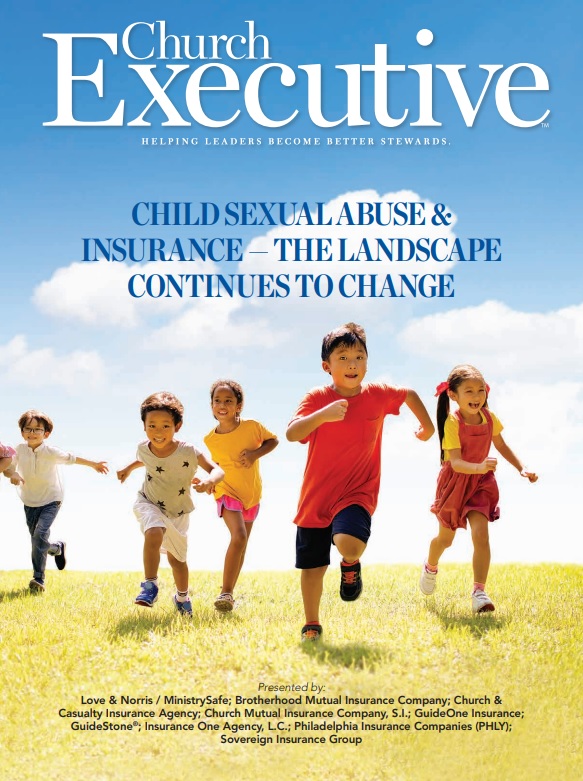
As shifts in society and politics unfold, organizations that serve youth are recognizing new risks related to child sexual abuse. Many states have enacted reviver statutes that now open your ministry to claims stemming from incidents that might have happened decades ago.

Vice President – Religious Markets Underwriting
Church Mutual Insurance Company, S.I.
For a variety of reasons, many victims of child sexual abuse do not report the incidents until years after the fact. To allow victims to legally file claims related to long-past incidents of abuse, many states have suspended or eliminated their defined statute of limitations on child sexual assault claims. These reviver statutes vary from state to state, but all open a window for victims to come forward years or even decades after the alleged incidents took place.
Twenty-four states plus the District of Columbia have enacted reviver laws. These laws vary widely based on the maximum age at which a victim can file a claim. Some states allow for claims against perpetrators only, while others allow for claims against other types of defendants, which could include churches. Maine and Vermont have the broadest reviver laws; both states have permanently opened the revival window for all claims against all types of defendants.
The statute of limitations on civil claims, in which churches are most likely to be named as a defendant, have been eliminated in 15 states. In an additional 14 states, victims have until they are at least 35 years old to file a civil claim.
A total of 35 states and the federal government have statute of limitations reform bills pending in 2021. These measures vary, but all are intended to expand existing revival windows or do away with statutes of limitations altogether.
Will your insurance policy cover these claims?
In light of this changing legislation, when it comes to your insurance protection, it’s important to know your policies — past and present — and especially whether your coverage is or was on an occurrence basis or claims-made basis.
An occurrence-based policy provides coverage for events alleged to have happened during the policy period — even if a lawsuit is initiated long after the policy period ended. Occurrence-based coverage offers greater protection in situations when a significant amount of time has passed between the alleged incident and the claim, which is often the case with child sexual abuse claims.
When considering your insurance needs, look for sexual misconduct coverage that includes legal defense costs and crisis management services to restore your reputation, goodwill and confidence in your organization.
Be wary of claims-made coverage for sexual abuse, as the incident and claim must occur in the same policy period. A claim reported for an incident that occurred before the policy period is covered only if the incident occurred on or after the retroactive date stated on the policy. A retroactive date defines how far back in time a loss can occur for your policy to cover your claim.
Claims-made coverage is fine for the types of claims that are typically reported promptly, such as slips and falls. However, even in states without reviver statutes, victims of child sexual abuse might have several years to report under the state’s statute of limitations. So, regardless of reviver laws, a claims-made policy can create a very costly gap in coverage.

I encourage faith leaders to study up on the reviver laws in your state and review your past insurance policies to see where your organization might be vulnerable if a claim is filed against it. Especially note any past claims-made policies that create a gap in coverage. Supplemental Extended Reporting Periods are an important consideration to inquire about when moving from a claims-made policy to an occurrence-based policy. This provision extends the amount of time to report a claim after the claims-made policy ends.
Also, if any past sexual abuse claims against your organization were dismissed because the statute of limitations had expired, be aware that those claims could be refiled under a reviver law.
Insurance carriers are monitoring changes in reviver statutes and claims reported. At Church Mutual, we have been a strong risk management partner in this area for many decades and are committed to offering this protection to our customers.
Having sexual misconduct coverage is imperative in today’s world. This type of coverage protects your organization, innocent employees, volunteers and members acting within the scope of their duties.
When considering your insurance needs, look for sexual misconduct coverage that includes legal defense costs and crisis management services to restore your reputation, goodwill and confidence in your organization. In the face of a sexual molestation or misconduct accusation, you and your organization can preserve your reputation and stay focused on the good work you do.


